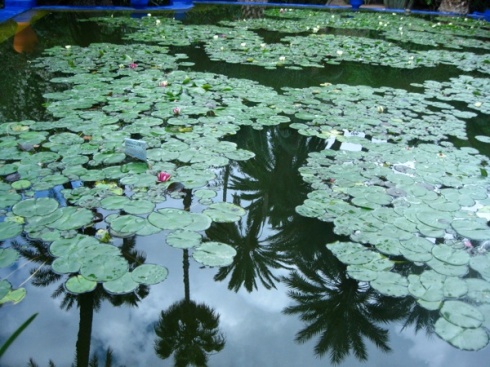When deciding where and how to study abroad, staying with a host family always stuck out as a benefit in my mind. Some of the students on my program would argue that homestays in the Arab World are inherently a bad idea; they say plunking an American 20-something down in the midst of an authoritarian, abstinence-oriented nuclear family leads to unavoidable conflicts (from what I’ve heard, this could involve stumbling home a drunken mess only to realize that you’ve broken curfew and have to bang on the door until someone wakes up to let you in). While I did expect some problems, I hoped being immersed in Moroccan life would answer all my questions about language, gender roles, Islam and Westernization.
Fast forward 4 months: I’ll be leaving in two weeks, and I’m finding that I still have a myriad of questions. Why has women’s health suddenly become a priority in Morocco? Are the racist/Orientalist advertisements that I see on TV and billboards created in the West or here in the Arab World? If the King owns two of the three leading grocery chains, does that mean the government can track people’s everyday purchases, just as Safeway or Shaw’s does in the U.S.? What do the narratives behind Lebanese music videos that are popular in Morocco say about gender roles here?
Instead of getting all the answers I wanted, it has taken me four months just to figure out the right questions. My roommate joked that she’s glad I found this out for her — she plans to do anthropological work in other countries after she graduates, and now at least she has a timeframe for how long she’ll need to get started. But why does it take so long to figure things out here? I can think of a few reasons.
First, it takes a long time to get comfortable enough to question. Though it’s true that there are a lot of similarities between my life here and my life in the States, the differences are pretty overwhelming. For example, in the States I don’t have the option to sit for hours without interruption in a cafe with free wifi. In Starbucks, there’s always a barista hovering around with a broom or a pre-teen blasting hip hop from his iTunes. But here, going to Al Houda – our usual cafe – is the only way I can get work done. I have no space in my home reserved specifically for studying. At any minute, my host sister could come bounding into my room on her cell phone, looking for some privacy from her parents and older brother. When I’m at home, I’m summoned for food or conversation every hour or so, making it hard to get into a good work groove. So it took me at least two months to even get studying down, let alone navigating the crumbling sidewalks.
My second obstacle was the language barrier. Language plays a key role in how I analyze the world around me. The fact that I couldn’t understand any of what my family members said to each other when I first came made it impossible for me to guess about their relations with each other beyond what I could see and feel. How often they hug and the tones of their voices say a lot about their interactions, but once I’d thought about those things, I was stymied. Now that I have a better understanding, I can ask things like, why does Mama Rachida sometimes refer to Papa Hamid as “my brother?” What does this say about their relationship? It’s a question I couldn’t have asked before I learned the word “hoya,” which is “brother” with a first-person possessive pronoun in Moroccan colloquial Arabic.
Finally, there’s a sort of indirect quality to interactions here that always leaves me guessing. No one ever says what they are actually feeling, out of politeness. If you run into a friend on the street, she will insist that you join her for tea, even if she is on her way to do something important or is feeling sick or is on the brink of running out of tea and can’t afford to buy more. No matter what, her hospitality will dictate that she welcomes you, and come hell or high water, you better accept that invitation.
There are subtle hints when a Moroccan is saying one thing but means another: a gleam in the eye, the tone of the voice, something. I haven’t gotten it all quite figured out yet, and I’m not entirely sure that this quality is unique to Moroccans, but regardless, it often leaves me feeling like I’m looking at a reflection or an abstract painting. I have to modify it in my mind in order to find the real meaning behind what’s being said.



Leave a comment